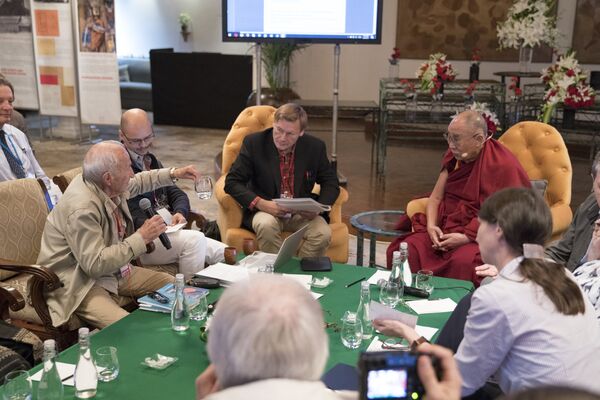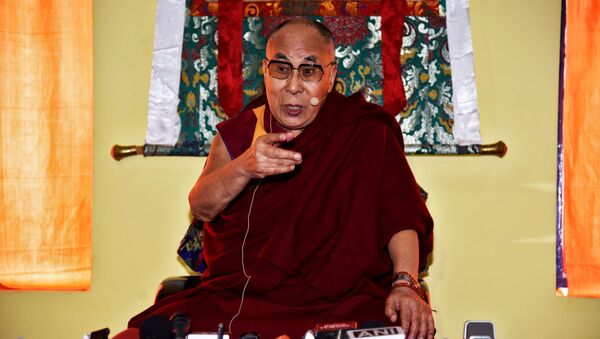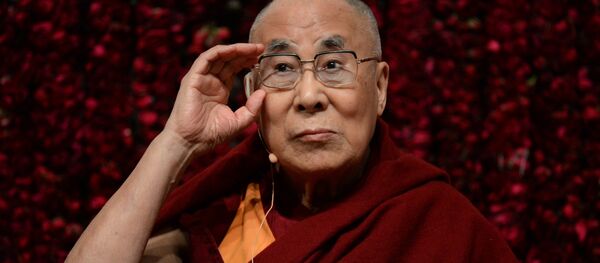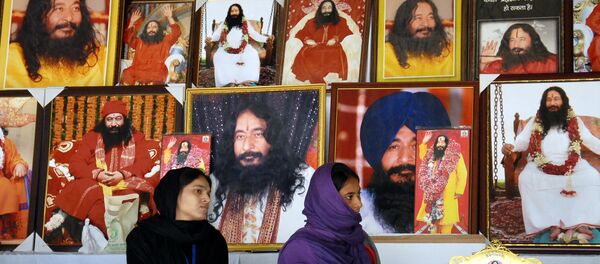The Dalai Lama and the Russian scientists spent several days in New Delhi discussing the nature of the human conscience and other things that have an impact on the way people act and think.
“Our cooperation is two-pronged: it aims to expand our scientific knowledge and promote compassion and peace that lead us to happiness,” the spiritual leader of Tibetan Buddhism told RIA when commenting on the results of this week’s conference.
According to the Dalai Lama, the concept of multiple lives, which has been promoted in Asia for thousands of years, has traditionally been rejected by Western scholars. He said that Russian science, which differs from the classic materialism, could serve as a bridge between East and West.
When asked to explain the great deal of interest the Buddhists are taking in children’s memories of their previous lives, the Dalai Lama said that children have better memories of their past arrivals into this world.

However, these memories tend to vanish as they grow older unless they exercise their brains.
“By meditating people can sink into the deeper levels of conscience, feel better and this is when they restart to recall what happened to them in their previous lives,” he added.
Ethics and Happiness
In an interview with RIA, David Dubrovsky, a professor of analytical philosophy at the Institute of Philosophical Studies in Moscow, spoke about the prospect of neuroscientific approaches to the problem of human conscience “amid the deepening crisis of human civilization.”
His criticism of the “system of all-stops-out consumerism,” aggression and extreme egotism was readily embraced by the learned Buddhist monks.
Professor Dubrovsky also touched upon the mechanism of compassion through the reflection of other people’s emotions.
“The brain’s ability to reflect other people’s emotions fuels empathy and we need a more in-depth study of this phenomenon,” he added.
The Dalai Lama and the participating Buddhist monks also said that the science of Buddhism has always tried to ease people’s suffering and help them find peace of mind, unity and happiness.
“Our conscience and our brain are playing off each other, so to say, but they still are two different phenomena. During my long study of this subject I arrived at certain conclusions that have to do with quantum physics. I meditate every day and this impacts my emotions and my state of mind: the negative emotions weaken and the positive ones get stronger,” the Dalai Lama told RIA.
“Negative emotions are a result of our attempts to cling to what we believe is our independent ‘self,’ which really does not exist,” he said.
Peace of Mind
He agreed with professor Dubrovsky that our conscience with all its mass of knowledge controls our body.
“Our problems and the accumulated karma stem from our attempts to hang on to our ‘self.’ The bad things we do are the result of our emotional activity, which is based on a distorted picture of things, which, in turn, is due to our clinging to the ‘self,” the Dalai Lama continued.
“We need to realize that emotional attachment, rage and other negative emotions destroy our peace and our health. Only if we realize this can we achieve peace of mind and happiness,” the Dalai Lama emphasized.
The participants underscored the need for a new theory to study the nature of the human conscience and its link to the way our brains work.
The scientists believe that the Buddhist theory could hold the key to our understanding of one of nature’s best-kept secrets.




